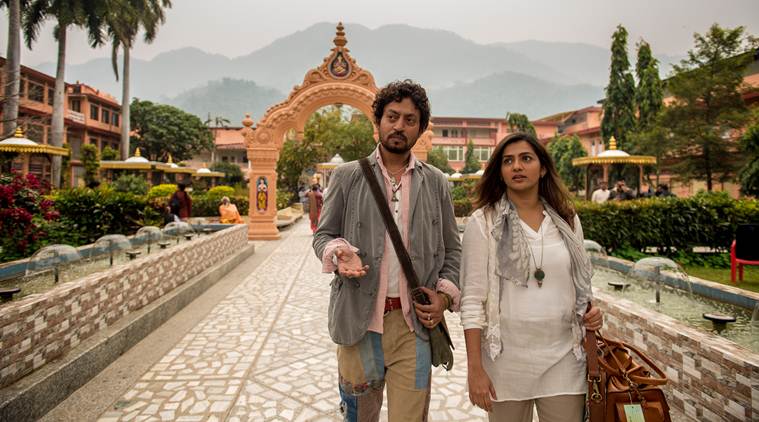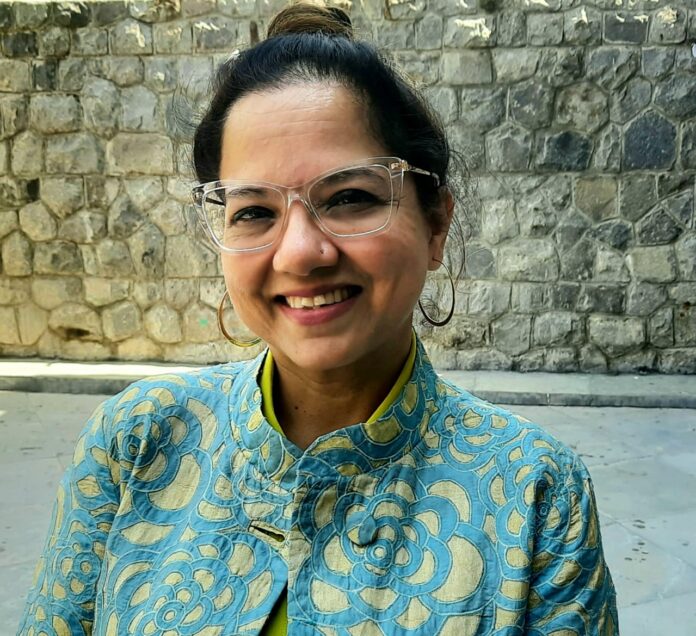Tanuja Chandra is a prominent figure in the Indian film industry, known for her unique storytelling and directorial prowess. Raised in Delhi, India, her upbringing in a culturally rich environment instilled in her a deep appreciation for storytelling and human experiences. She pursued her education in literature and film studies, laying the foundation for her future endeavors in filmmaking.
Starting as an assistant director, Chandra honed her skills and gained valuable insights into the craft, eventually transitioning into directing her own projects. Her directorial style is characterized by its realism, emotional depth, and nuanced portrayal of human relationships. She often explores themes such as love, identity, and societal norms, weaving them into compelling narratives.
Chandra has directed several critically acclaimed films, including “Dushman” (1998), a psychological thriller, “Sangharsh” (1999), a gripping suspense thriller, “Zindaggi Rocks” (2006), a heartwarming drama, and “Qarib Qarib Singlle” (2017), a romantic comedy-drama.
Throughout her career, Chandra has challenged conventional norms and pushed boundaries with her storytelling, earning her a dedicated fan base and critical acclaim. As a versatile filmmaker, she continues to explore new avenues in storytelling, inspiring future generations of filmmakers.
Tanuja Chandra’s journey as a filmmaker has been marked by creativity, perseverance, and a deep understanding of the human experience. Her legacy in Indian cinema is sure to endure for years to come, solidifying her place as one of India’s most talented directors and writers.
In a thought-provoking discussion with The Interview World, Tanuja Chandra sheds light on the pressing challenges surrounding mental health in our society. She delves into the significant role that Indian cinema plays in addressing these issues and emphasizes the importance of exploring parallel cinema. Below are the pivotal takeaways from her insightful interview.
Q: How do you see mental health a challenge in Indian society?
A: Mental health poses a significant challenge in Indian society due to entrenched stigma, limited awareness, and inadequate access to care. The stigma surrounding mental illness persists, leading to reluctance seeking help and perpetuating misconceptions. Additionally, there is a widespread lack of understanding about mental health issues among the public and within the healthcare system, resulting in underdiagnosis and insufficient treatment.
Moreover, gender disparities play a role, as women face unique stressors related to societal expectations, discrimination, and violence. Addressing these challenges necessitates comprehensive strategies, including destigmatization efforts, raising awareness, and enhancing access to mental healthcare services, especially in underserved areas. Socio-cultural norms must also be addressed to foster supportive environments and combat harmful practices.
Additionally, addressing economic and gender inequalities is crucial for improving mental health outcomes. Ultimately, a concerted effort from policymakers, healthcare professionals, communities, and individuals is needed to address the complex interplay of factors contributing to mental health challenges in India.
Q: What impact do Indian films have on mental health awareness and portrayal of mental health issues?
A: Films and various content draw inspiration from real-life occurrences, yet it’s vital to distinguish between cinematic depictions and actual experiences. The media and entertainment industry, including filmmakers and TV producers, bear significant responsibility in shaping societal perceptions.
Given the profound impact movies have on audiences, they possess a powerful tool for influencing attitudes towards mental health challenges. By conveying the right message, films can foster sensitivity and understanding.
Unfortunately, portrayals of mental health in media often perpetuate harmful stereotypes, portraying individuals as “mad” or trivializing their struggles through comedic treatment. It’s crucial to recognize mental illness as a legitimate physical condition, deserving of respect and understanding.
Acknowledging personal growth, I’ve come to understand the gravity of mental health issues and the importance of treating them with seriousness and compassion. Integrating real-life experiences into cinematic narratives can serve as a powerful vehicle for raising awareness and fostering empathy.
While mainstream cinema may prioritize entertainment value, it’s imperative to infuse Hindi movies with authentic portrayals of mental health issues. While approaches may differ across regional cinemas, there’s a collective need to elevate the discourse surrounding mental health in the film industry.
In conclusion, films wield significant influence in shaping societal perceptions, including attitudes towards mental health. Filmmakers need to recognize their responsibility in portraying these issues accurately and sensitively, thereby contributing to a more informed and compassionate society.
Q: What factors contribute to the apparent reluctance of Hindi cinema to address significant societal issues, and why does it continue to overlook such crucial matters?
A: In recent times, there has been a shift in our contemplation towards this matter within the realm of life itself. Previously, it was merely brushed aside as a source of comic relief. Embedding a hint of madness in a character was deemed sufficient to portray them as a villain.
What often occurs, you see, is that in our pursuit of entertainment, we unwittingly overlook the harm we may be causing. The primary focus seems to be on maximizing audience turnout at cinemas. Hence, it’s fair to acknowledge that a significant portion of the responsibility rests with the audience’s preferences. There’s a demand for entertainment that doesn’t delve into serious themes. Instead, viewers seek out what’s intriguing. Unfortunately, this trend paints a gloomy picture for the future of parallel cinema in India. Although it once flourished, it’s now lost amidst a sea of mainstream content.
OTT platforms have proven to be a boon for individuals like myself, as well as for directors and storytellers. They provide a platform where nuanced and complex narratives can thrive. However, even in the realm of OTT, clichéd plots often overshadow real-life depth. Indian cinema must reassess its priorities and tackle important issues through meaningful storytelling. This doesn’t necessarily entail adopting a dark tone, as there’s a perceived aversion to such films among audiences.
Women must be given more visibility in cinema, both in front of and behind the camera. With a greater presence of women filmmakers, the narrative landscape will naturally evolve.
Q: What key message do you wish to convey to the audience?
A: I urge the audience to explore a spectrum of cinematic experiences. Rather than confining your choices to the familiar territory of commercial and mainstream action films, which often overshadow the richness of parallel cinema, I implore you to broaden your horizons. When the majority of patrons consistently opt for blockbuster entertainment, it inadvertently sidelines the funding opportunities available to alternative and independent filmmakers. This issue resonates deeply with me, having grappled firsthand with the challenges of securing financial backing for my own projects.
It’s crucial to recognize that the vitality of any film industry hinges on the support and engagement of its audience. Without their enthusiastic backing, the prospects for lesser-known, yet equally compelling, parallel cinema are greatly diminished. Therefore, I earnestly appeal to moviegoers: if you harbor a genuine appreciation for thought-provoking narratives and innovative storytelling, make a conscious effort to seek out and attend screenings of parallel cinema. By doing so, you not only enrich your own cinematic experience but also contribute to the sustainability and diversity of the film industry as a whole.



